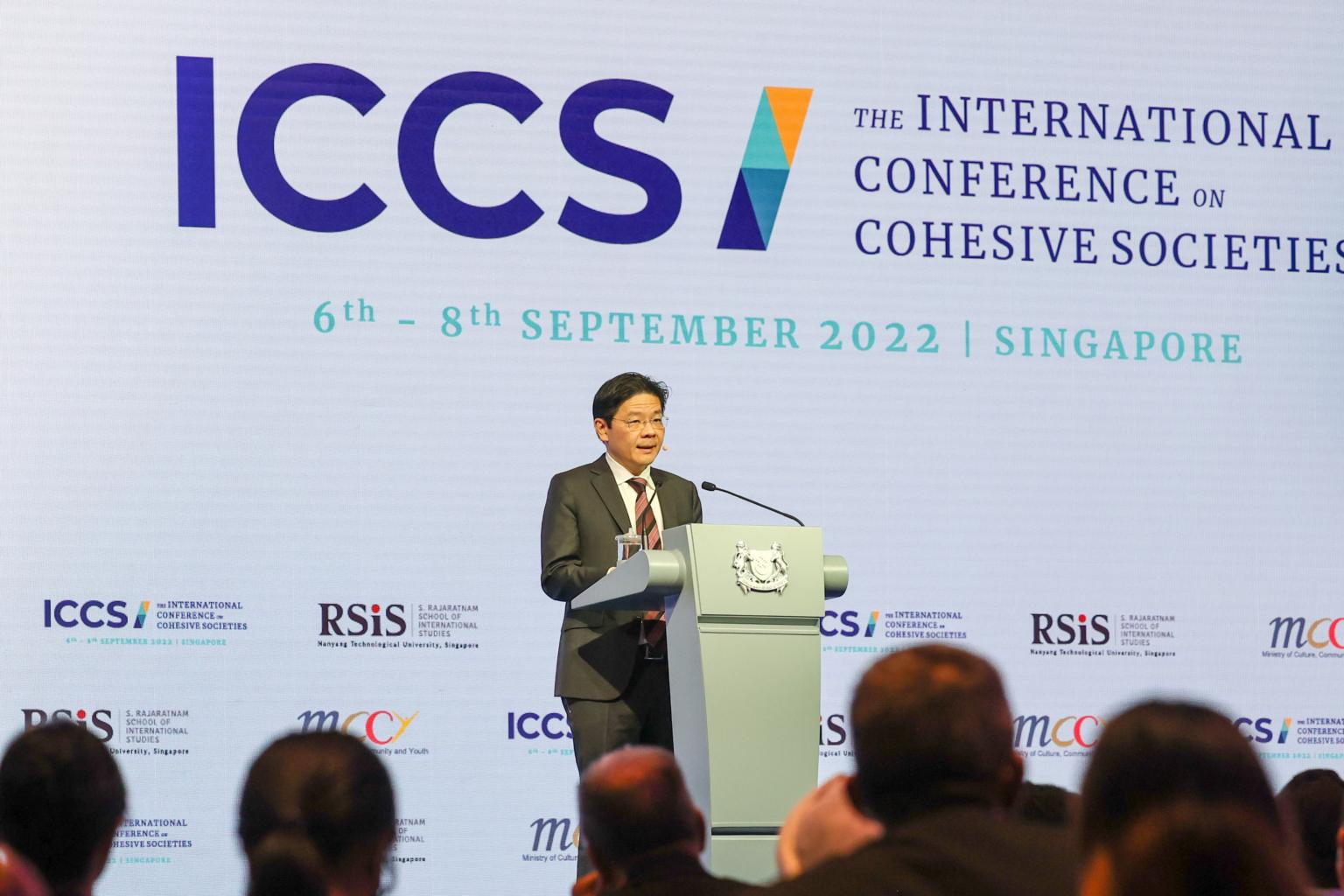Disadvantages in life are multi-faceted and S'pore will keep addressing them: DPM Wong
Sign up now: Get ST's newsletters delivered to your inbox

DPM Lawrence Wong said Singapore takes a family-centric approach to helping its people who are less well-to-do.
PHOTO: LIANHE ZAOBAO
SINGAPORE - Disadvantages in life are a multi-faceted issue, not just confined to finances, and Singapore is continually looking at how people who are less well off here can be helped.
While income inequality here over the last decade has been narrowing, lower-income families still have issues and concerns that make them feel marginalised from the rest of society, said Deputy Prime Minister Lawrence Wong.
This is a problem for which the solution goes beyond providing more financial help, due to its complexity, and Mr Wong said on Thursday that this could involve family and marital issues, as well as problems related to incarceration and drug addiction.
"We are continually looking at how we can help them. And it's an issue that goes beyond providing more financial help because it's a very complex issue. Very often, when you reach out to these families and you understand the issues they face, it's multi-faceted, it's complicated," he said.
Singapore takes a family-centric approach to helping its people who are less well-to-do, and an emphasis is placed on understanding their needs and providing wraparound solutions so that they do not need to jump through hoops in order to get help, he added.
This approach is "highly resource intensive" and takes a lot of coordination, said Mr Wong, noting that a whole team of people needs to come together, including counsellors, social workers and volunteers.
"But we think we can do it in Singapore because we are just one city, we are so compact, and if we marshal our resources not just from the Government but among community groups, I think we are able to make a difference," he added.
This is a point Mr Wong, who is also Finance Minister, made during a discussion with religious leaders, policymakers, academics and civil society activists held on the third and last day of the International Conference on Cohesive Societies at the Raffles City Convention Centre.
The event, which was held for the second time since 2019, drew 800 participants from more than 40 countries who came together to discuss issues of faith, identity and cohesion.
It was organised by the Nanyang Technological University's S. Rajaratnam School of International Studies (RSIS) think-tank.
During the hour-long discussion, which was moderated by RSIS executive deputy chairman and Ambassador-at-Large Ong Keng Yong, Mr Wong was asked about what organisations can do to tap the potential that youth have.
Those who are older need to make the effort to reach out to the younger generation and involve them, DPM Wong said, stressing that this goes beyond simply opening a youth wing in an organisation.
"Frankly, it's very easy to have youth wings, but if the youth wings are rather separate from the main organisation, if there is no interaction, if they don't feel a sense of empowerment, then they would not feel connected to the broader community," he added.
Instead, effort needs to be made to find out what their passions and interests are, and Mr Wong said that youth should also be given the space to initiate their own projects.
But young people need to also be respectful of their seniors, and understand that at times, they are simply sharing their experiences.
Mr Wong said that young people should take the words of wisdom from those who are older seriously.
"It is worth your while to... appreciate that they are seniors who have gone through a lot more than you have, sometimes very painful lessons in history. And always bear that in mind and think about charting your own way forward," he added.
"And you do not have to repeat the same mistakes, and you can learn from these experiences and build on what we have lived through as a society and find new ways forward."


